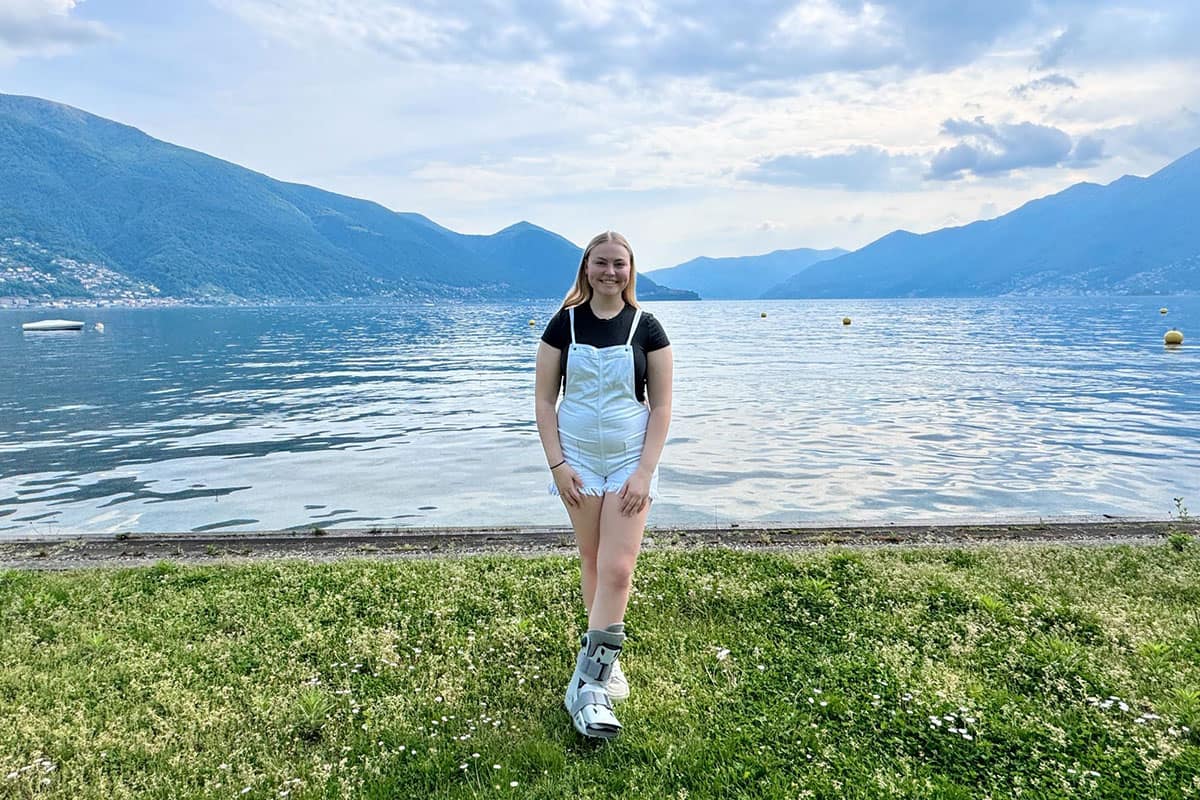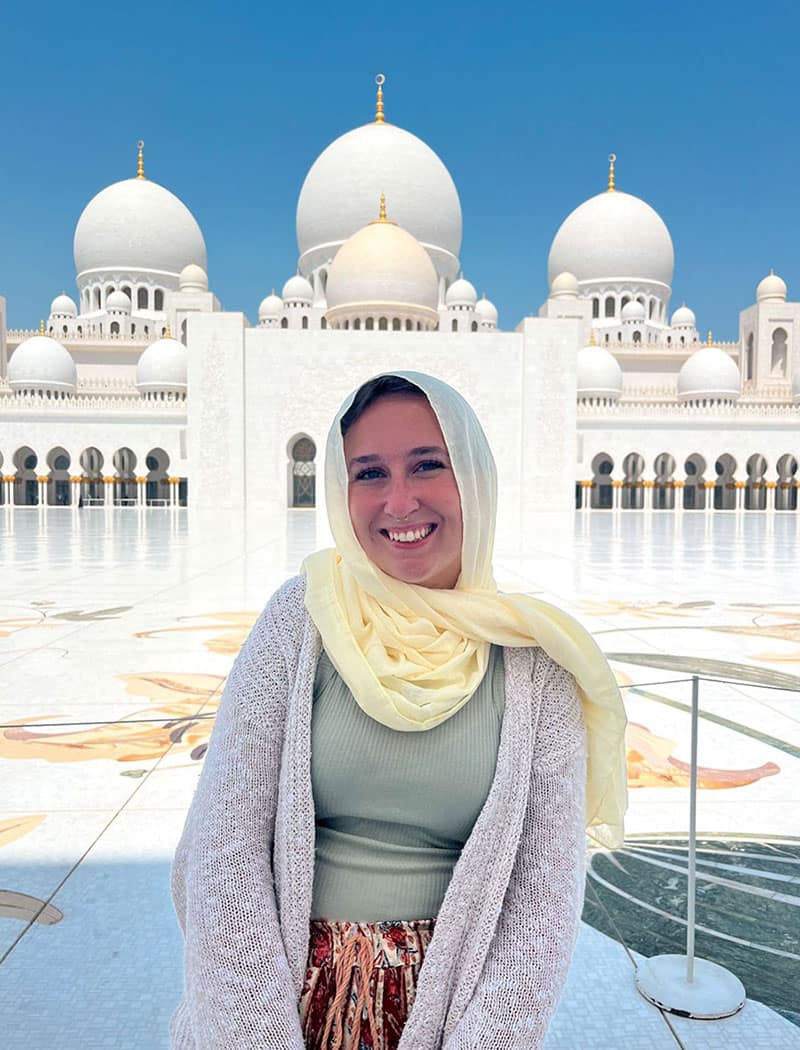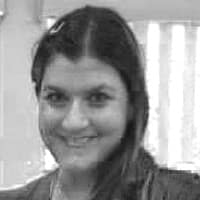Grant Funding Powers Student Research Abroad

Before starting a summer internship at Johns Hopkins University Applied Physics Laboratory, Embry-Riddle Aeronautical University student Skylar Butler had the rare opportunity to tour some of Europe’s top physics facilities in person.
“I arrived three days late because of emergency bone surgery,” said Butler, a junior double-majoring in Astronomy & Astrophysics and Space Physics from Columbus, Ohio. “But I had never been outside the U.S. before, so nothing was going to stop me.”
Butler’s travels were funded by a 2024 Research Abroad Grant, awarded through the university’s Daytona Beach Campus.
“The Office of Undergraduate Research is excited to help students enhance their academic and professional growth,” said Dr. Ronnie Mack, former director of the Office of Undergraduate Research. “International research experiences are particularly enriching, and we are committed to supporting the development of undergraduate researchers in creative ways."
Butler is studying gravitational waves from core-collapse supernovae with Dr. Michele Zanolin, a professor of physics at the Prescott Campus. As part of a study abroad trip, she toured the European Organization for Nuclear Research, known as CERN, in Geneva, Switzerland. She also had the opportunity to tour Virgo, a gravitational wave interferometer hosted by the European Gravitational Observatory (EGO), located in Italy.
“Touring the world's largest particle accelerator and diving into core-collapse supernovae research has expanded my horizons and deepened my passion for physics,” said Butler.
In addition to juggling school, internships and two part-time jobs, Butler is also involved in three different undergraduate research projects on topics like stellar evolution, asteroid disruption and particle physics.
“I try to always put my best foot forward in everything that I do, but you have to manage your time,” she said. “Learning about different things helps me make a better decision about what I want my future to be.”
But the last year and a half have been tough after Butler suffered a skateboard injury that led to three major surgeries and a bone infection. After her latest surgery in March, she had to move around campus with a knee scooter, as well as an IV port with antibiotics in her arm.
“Through that process, I learned grit,” she said. “Life is going to throw you curveballs, and you have to learn how to adapt.”
After returning from Europe in June, Butler spent the rest of the summer interning at Johns Hopkins in Laurel, Maryland.
“Research within the space sector is my end goal,” she said. “I want to be able to push the frontiers of what we know.”

James "Tyler" Deal, a senior Uncrewed Aircraft Systems (UAS) student, traveled to Argentina for Iberá Wetlands restoration research. (Photo: Embry‑Riddle/James "Tyler" Deal)
Innovation Assisting Conservation
James "Tyler" Deal, a senior Uncrewed Aircraft Systems (UAS) student, received a 2024 Research Abroad Grant that funded travel to Argentina for Iberá Wetlands restoration research.
“It was such a great experience and my first time out of the country,” said Deal, who is from Milton, West Virginia. “And it wouldn’t have been possible without the grant.”
During the trip, Deal worked with Dr. Nickolas “Dan” Macchiarella, a professor in the Aeronautical Science Department, to use UAS to collect and analyze data on plant and wetland health.
“It’s the second-largest wetland in the world,” said Deal, “so it’s a good region to focus on for conservation efforts.”
On the Daytona Beach Campus, Deal is active with Turtle Tech, which uses UAS to study sea turtles, and was involved in a project using UAS to help assess eco-friendly stormwater solutions in the City of Cape Canaveral, Florida. He completed an internship last summer with Lumbee Tribe Enterprises and is currently a flight testing and production intern at Censys Technologies.
“Embry-Riddle has opportunities that you can’t really find anywhere else,” he said.
A Journey of Exploration

Casandra Walker was the first student ever to receive a Research Abroad Grant, traveling to the United Arab Emirates last summer. (Photo: Embry‑Riddle/Casandra Walker)
Casandra Walker knows firsthand how life-changing a Research Abroad Grant can be. She was the first student ever to receive the grant last summer. Traveling to the United Arab Emirates with the university’s Arabic in Dubai program, Walker’s research focused on the UAE’s historic pearl diving industry, how the topic is portrayed in museums and its implications for contemporary slavery in the Gulf.
“I had a great experience,” she said. “I loved the classes I was taking and the opportunity to practice my Arabic.”
Walker, who is from Michigan, is majoring in Global Conflict Studies with minors in Arabic Studies and Computer Science. She is heavily involved on campus as a fellow at the Center for Faith and Spirituality, a peer mentor for University 195, a Panhellenic Council officer and an executive officer in her sorority.
"I have always been very interested in history and geopolitics,” said Walker. “I hope that my work inspires other students who may want to go in a different direction at Embry-Riddle.”
Currently, she is a research assistant for Dr. Chelsi Mueller, an assistant professor in the Department of Security Studies and International Affairs, gathering Arabic sources about recent events in the region's geopolitics.
“I am looking at graduate school,” Walker said. “I would like to continue studying the Gulf and possibly become a researcher and analyst.”

 Melanie Stawicki Azam
Melanie Stawicki Azam